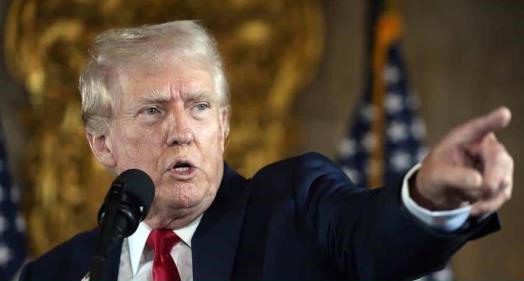BTN News: The federal judge in the District of Columbia, Tanya Chutkan, has made a significant decision to postpone the next hearing in the high-profile case against former U.S. President and current Republican candidate Donald Trump. Originally scheduled for August 16, the hearing has been rescheduled for September 5. This case, which has captured national and international attention, revolves around Trump’s alleged involvement in the January 2021 Capitol insurrection and his efforts to overturn the results of the 2020 presidential election.
The postponement comes after a request from the special prosecutor in the case, Jack Smith. Smith argued that more time is needed to fully assess the implications of a recent Supreme Court ruling from July. This ruling granted former presidents immunity from legal proceedings for actions taken as part of their official duties while in office. The prosecutor’s office emphasized the need to thoroughly evaluate this new legal precedent and its potential impact on the case against Trump.
This development marks a strategic shift for the prosecution, which had previously sought to expedite the trial. The change in approach contrasts with Trump’s defense team, which has consistently employed delaying tactics in an apparent effort to push the trial beyond the November 5 election. Trump, who has repeatedly denied any wrongdoing, is facing serious charges in the District of Columbia federal court. These include allegations of conspiring to overturn the 2020 election results and instigating the violent attack on the Capitol, aimed at halting the peaceful transfer of power to President Joe Biden.
The case was brought back before Judge Chutkan last Friday after an eight-month pause. This delay was caused by Trump’s appeal to the Supreme Court, in which he argued that his actions post-election were protected by presidential immunity. The Supreme Court’s ruling, while affirming that former presidents are immune for official acts conducted while in office, left it to the lower courts to determine whether Trump’s conduct after the election could be considered part of his official duties.
This Capitol assault case is just one of four criminal indictments that have been filed against Trump. Earlier this year, in May, Trump was found guilty of falsifying business records in New York, though the sentencing for that conviction has yet to be announced. Additionally, in Georgia, Trump is accused of leading a criminal enterprise aimed at reversing the 2020 election results in that state. Meanwhile, in Florida, Trump faced charges related to the illegal retention of classified documents after leaving the White House, although the judge recently dismissed the case.
The legal battles surrounding Trump have not only put his political future at risk but have also raised significant questions about the accountability of former presidents and the limits of presidential immunity. As the September hearing approaches, all eyes will be on how the courts navigate the complex issues at the heart of this unprecedented case.


